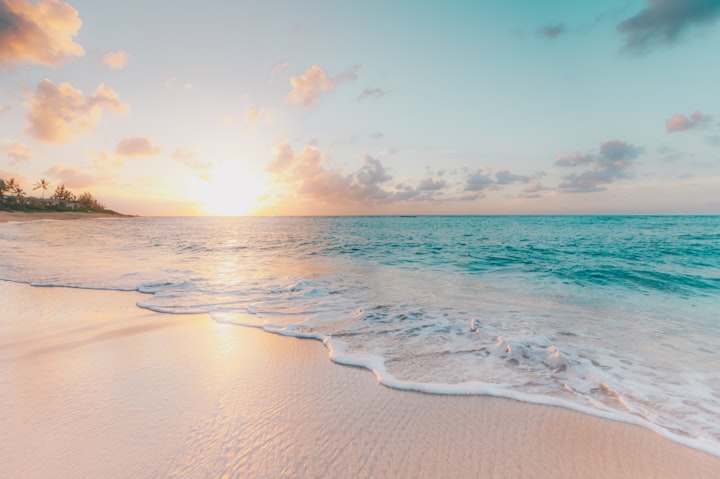R.E.S.P.E.C.T.
“I also believe there is a basic level of respect for all living humans and creatures, which is something I think many millennials tend to overlook.”

I was afraid to even bring up this topic out of fear that people might become either too defensive or too opinionated about it. However, I am witnessing more and more that a lot of people are being offended or are feeling uncomfortable by another person’s actions for whatever reason, whether it is seen as racist, sexist, etc. Also, some of this behavior does carry over into cultural appropriation. After discussing this with a few friends I think it’s important to have a serious talk about these things.
I think what it all boils down to is a lack of respect for one another. Many people are annoyed because they feel they cannot speak freely without offending someone, and those who are offended are “overly sensitive.” They feel that because they live in America they have the right to exercise free speech. After all, it’s not like they are threatening to harm anyone’s lives, right?
However, words and actions do indeed have power. It doesn’t take away the fact that certain words and phrases do make people feel uncomfortable. Just because it doesn’t bother you, it doesn’t take away the fact that the other person may feel uncomfortable just by what you might have said or done. Just because it doesn’t feel valid for you it doesn’t make the other person’s feelings less valid.
For example, in a lot of rap music there is excessive use of the N-word. Of course, black people are not the only ones who listen to it. It has been influencing music and races all around the world. However, whoever says the word makes an impact. For black culture using “nigga” in hip hop and rap is considered acceptable. If someone who is white or caucasian says it, then it is a different story.
There may be some who believe this shouldn’t be a big deal. They are just simply enjoying the music and repeating the lyrics. Let’s look at a different scenario. Let’s say there are two children on a playground. One of them is bullying the other. Now if the threat is coming from someone who is tiny and frail, it may not have that much of an impact. However if the same threat comes from someone much bigger in size, then it has a completely different impact.
This same concept applies here. Who says the words can have a different effect. Historically, the N-word has a bad reputation. So, if a white person says it, then the outcome may not be the most welcoming. Now, every black person may not have the same reaction. There may be some who may not honestly care because “nigga” rather than “nigger” is used in throughout hip hop culture. However, if someone asks another who used the word NOT to, because it makes them uncomfortable, then it won’t be the end of the world to respect the other person’s feelings. This is where the concept that we were taught as children, “Treat others the way you want to be treated,” comes into play.
Just the other day I was reading a script with a few friends. We were all reading characters of different races and ethnicities. One of my friends, who is white, was reading for the character of a black male. The character consistently used the word “nigger” in his speech. My friend immediately stopped reading to let me know that he felt really uncomfortable saying it and wanted to know how I felt about what just happened. I appreciated the fact that he even brought it up, and we had a mature conversation about it from one human being to another. I pointed out that, considering I was the only black person in the room, it wasn’t necessarily fair for me to speak on behalf of all black people in the world, because my views may be different from others. I wasn’t offended by him saying it only because he was reading for a character that wasn’t him. I knew he wasn’t just throwing the term around loosely or calling another person that, especially a black person. Plus, I was also considering the time period of the play which was the 1980’s, and the fact that the person he was reading for was actually a real person. As an actor, I see that it’s important to honor that character’s truth, which includes their words. Now, others are free to disagree, but as of right now, this is how I feel. Plus, I knew he was reading the part in a respectful manner, not as a farce. However, I would suggest to him and anyone else that faces this issue that if you feel that uncomfortable about it, or if it makes those around you uncomfortable then there’s no reason to force yourself to do it.
As a fellow millennial I sense that many in my generation believe that respect is something that needs to be earned rather than freely given. Although I do agree there is some truth to that, I also believe there is a basic level of respect for all living humans and creatures, which is something I think many millennials tend to overlook.
Culture appropriation begins to arise when people outside of a certain culture are engaging in an activity that may have a certain significance to that culture, but those outside it perform it simply because they think it is cute, funny or cool.
Many times I have looked on YouTube and seen white women do tutorials for “traditional Native American” makeup. Not only am I African American, but a large percentage of me is also Native American as well, especially from my father’s side of the family. So when I see things like this, don’t get me wrong, they slay the makeup, but their idea of what is traditional is actually pretty off. It’s obvious they got their inspiration from the Disney cartoon, Pocahontas, and really didn’t do much research outside of that. Let’s be clear, no diss to Disney, but they aren’t accurate about everything. Plus, if you’re doing it simply because you think it looks cute or it looks good without knowing the reasons for these Native American traditions, then it’s honestly considered to be disrespectful. If you truly would like to learn more about these things then you can do research or you could go talk to people who are actually Native American. Chances are, using a cartoon for a frame of reference is probably not the best resource.
Yes, it’s true. I believe you should be unapologetically you. There could be a slight annoyance towards always having to watch your words and actions because it feels as though you are constantly putting a filter on yourself, especially if you are not used to doing it.
I think we need to recognize and stop ignoring that a basic respect for one another should exist, and this includes the way we use our words and our actions. It’s true that we cannot please everyone. I believe that throughout life we are going to encounter people who we may rub the wrong way or vice versa. That is unavoidable since everyone in the world is different. However, in an effort to embrace those differences we need to respect one another’s feelings rather than reject them. Much of this can be accomplished just by sitting down and having a mature conversation when these differences arise, without being aggressive or upset.
About the Creator
Tatiana Parker
23. GVSU Alumnus. Naropa University MFA student. Actress and aspiring writer. Twitter/IG: @tatianalparker






Comments
There are no comments for this story
Be the first to respond and start the conversation.